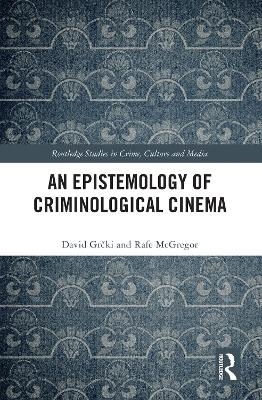
An Epistemology of Criminological Cinema
Seiten
2024
Routledge (Verlag)
978-1-032-44118-4 (ISBN)
Routledge (Verlag)
978-1-032-44118-4 (ISBN)
Standing at the intersection of criminology and philosophy, this book demonstrates the ways in which mythic movies and television series can provide understanding of actual crimes and social harms.
Standing at the intersection of criminology and philosophy, this book demonstrates the ways in which mythic movies and television series can provide an understanding of actual crimes and social harms.
Taking three social problems as its subjects – capitalist political economy, structural injustice, and racism – the book explores the ways in which David Fincher’s Fight Club (1999), HBO’s Game of Thrones (2011–2019), and Jordan Peele’s Us (2019) offer solutions by reconceiving justice in terms of personal and collective transformation, utopian thinking, and the relationship between racism and elitism, respectively. In doing so, the authors set out a theory of understanding the world based on cinematic and televisual works of art and conclude with a template that establishes a methodology for future use.
An Epistemology of Criminological Cinema is authoritative and accessible, ideal reading for undergraduate and postgraduate students, criminologists, philosophers, and film, television, and literary critics with an interest in social justice and social harm.
Standing at the intersection of criminology and philosophy, this book demonstrates the ways in which mythic movies and television series can provide an understanding of actual crimes and social harms.
Taking three social problems as its subjects – capitalist political economy, structural injustice, and racism – the book explores the ways in which David Fincher’s Fight Club (1999), HBO’s Game of Thrones (2011–2019), and Jordan Peele’s Us (2019) offer solutions by reconceiving justice in terms of personal and collective transformation, utopian thinking, and the relationship between racism and elitism, respectively. In doing so, the authors set out a theory of understanding the world based on cinematic and televisual works of art and conclude with a template that establishes a methodology for future use.
An Epistemology of Criminological Cinema is authoritative and accessible, ideal reading for undergraduate and postgraduate students, criminologists, philosophers, and film, television, and literary critics with an interest in social justice and social harm.
David Grčki is a philosopher and a film scholar who specializes in narrative aesthetics, film theory, and critical thinking. He is an associate lecturer in the Department of Philosophy at the University of Rijeka. Rafe McGregor is the author of eight books, including The Value of Literature (2016) and Literary Theory and Criminology (2023). He is Reader in Criminology at Edge Hill University in the UK, where he researches culture, political violence, and policing.
1 Introduction
2 Criminological cinema
3 Transformative justice
4 Utopian justice
5 Deterministic justice
6 Cinematic epistemology
7 Conclusion
| Erscheinungsdatum | 21.04.2024 |
|---|---|
| Reihe/Serie | Routledge Studies in Crime, Culture and Media |
| Verlagsort | London |
| Sprache | englisch |
| Maße | 156 x 234 mm |
| Gewicht | 421 g |
| Themenwelt | Geisteswissenschaften ► Philosophie |
| Recht / Steuern ► Strafrecht ► Kriminologie | |
| Sozialwissenschaften ► Kommunikation / Medien ► Medienwissenschaft | |
| ISBN-10 | 1-032-44118-6 / 1032441186 |
| ISBN-13 | 978-1-032-44118-4 / 9781032441184 |
| Zustand | Neuware |
| Haben Sie eine Frage zum Produkt? |
Mehr entdecken
aus dem Bereich
aus dem Bereich


